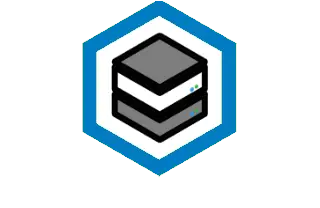I have a Synology that needs more storage. Thoughts on WD vs Seagate?
I’ve always bought WD Red, but with the recent WD controversies (including the SMR/CMR scandal and the recent WDDA warning), I’m considering Seagate. Also, I can’t find any difference between the IronWolf Pro and Exos drives. What am I missing?
| Metric | Seagate IronWolf Pro 20TB | Seagate Exos X20 20TB | WD Red Pro 20TB |
|---|---|---|---|
| Spindle speed (RPM) | 7200 | 7200 | 7200 |
| Internal transfer rate | 285 MB/s | 272 MB/s | 268 MB/s |
| Gas | Helium | Helium | ??? |
| Cache | 256MB | 256MB | 512MB |
| CMR? | Yes | Yes | Yes |
| MTBF (hours) | 2.5m | 2.5m | 2.5m |
| Non-recoverable errors per bits read | 1 in 10^15 | 1 in 10^15 | 1 in 10^15 |
| Load unload cycles | 600k | 600k | 600k |
| Workload rate (TB/yr) | 550 | 550 | 550 |
| Annualized Failure Rate (AFR) | 0.35% | 0.35% | ??? |
| Warranty | 5yr | 5yr | 5yr |
| Price | $349.99 | $329.99 | $379.99 |
Also, please don’t recommend shucking (those drives are in external enclosures because they didn’t pass QC to become internal HDDs).
Go for a mix. Buy them from different providers too if possible.
EXOS drives are LOUD. Keep that in mind.
The problem with relying on peoples past experiences of drive failures is that it’s a lagging indicator. That is we can only say retroactively what was better or worse, but of course that means little of current gen hardware. The reality is that the drives people see failing are always the ones they have. Backblaze data tends to be a little better just because of the sheer volume, but again, the fact that drive X1 failed at a marginally higher rate than drive Y1 doesn’t mean that drive X2 will fail at a significantly higher rate than drive Y2.
All this is to say that all modern drives are actually amazingly reliable and also that they will all eventually fail. Strategize your data usage with the later fact in mind, and then pull the trigger on whatever drives feel most useful to you. I’ve done builds with WD and Seagate Exos drives recently and both are still operating perfectly with no failures… but who knows what will happen down the line.
I bought 4 used 16TB ironwolfs for a really good price. They only had a year of on time. I have used them for 2 years now and no issues. I also haven’t had any issued with any of the WD, Toshiba or Hitachi drives I own–and my Hitachi is 15 years old.
I’ve personally just bought what is cheaper $/Gb if they’re broadly equal then features & power, if still locked I have tended towards WD. But I’m not storing anything critical and if a drive failed, I’d be annoyed but that’s about it.
Exos are noisy, but they work great…
And the helium fill? Makes them sound funny
I always run WD. None of my drives have failed in regular use. Been using WD in my NAS for two years now without issues.
Seagate for internal drives, WD for external.
You seem to be in the minority in regards to seagate, any particular reason you prefer them for internal drives?
Seagate has permanently lost my business since their 50% failure rates from many years ago. It’s well documented if you search for it. Never again. Lost multiple arrays because of this.
I was collecting dead hard drives for the magnets and shit, very few WD drives. Most drives were Seagate. I will never personally buy one again.
The reason that companies pay a lot of money for more reliable drives isn’t uptime or loss-prevention. There are better ways to solve that. The reason is because it’s super expensive to have a guy go pull the drive. That’s not a cost the homelabber has to pay. Buy retail drives, put them in a sensible configuration, and be on your merry way.
Off topic but, 20TB is amazing to see. When I got my first PC in 1995, 2GB was the biggest you could get. Then I got another in 1998 and I had a 16.8GB hard drive and it wasn’t standard in PC’s for over a year. 25 years later and we’re up to 20TB drives. It also costs about the same as the 16.8 not adjusting for inflation.
Toshiba n300
Can’t help with these 3 specifically. I ordered som wd gokd drives. Which are the ones intended for datacenters. Price was lower. And I think it was 10^16 not 10^15. That may not sound like alot. But doing the math, number of bits on a raid6 of 8 14tb drives, basically going to hit 10^15. And they supposedly have firmware to handle vibration. Maybe worth looking into.
As for these 3, I would think they would all be fine choices.
seems like seagate has higher failures, WD has terrible a terrible warranty department. pick your poison

